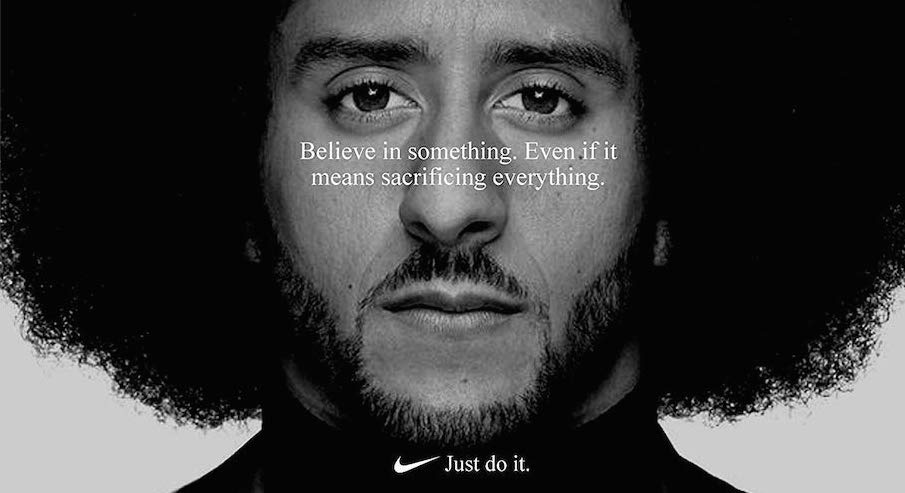Estimated reading time: 6 minutes
Mix & Matchbox Podcast – Episode 3
In today’s rapidly evolving business landscape, the ability to connect with customers on a deeper, more empathetic level has become a critical differentiator for brands. Gone are the days when a simple product pitch or promotional campaign was enough to capture and retain loyal consumers. Consumers now demand more – they want to feel understood, valued, and emotionally invested in the brands they choose to support.
Enter the concept of “Return on Empathy,” a term trademarked by marketing expert Tim Leon of Guile Leon Marketing Communications. In this insightful exploration, we dive into the transformative power of empathy in marketing and uncover how brands that prioritize this essential emotional intelligence can unlock unprecedented levels of customer loyalty and business growth.
Related Links
- Mix & Matchbox Podcast
- The Importance Of Empathy In Keyword Research
- 5 Surprising Podcasts That Will Help You Become A Better Marketer
The Rise of Empathy-Driven Marketing
The COVID-19 pandemic served as a catalyst for the increased emphasis on empathy in marketing. As consumer behaviors shifted dramatically, with more online shopping, remote work, and limited in-person interactions, brands were forced to reevaluate their approach to connecting with their audiences.
According to Leon, the research revealed a clear trend: “Consumers were saying, ‘If brands can show true empathy – understanding where we’re at and delivering authentic messages that demonstrate they get us – we will stay loyal to those brands, not just during the pandemic, but long-term.’”
This shift in consumer sentiment underscores the fundamental truth that empathy is not just a nice-to-have in marketing – it’s a strategic imperative. Brands that can genuinely empathize with their customers and tailor their messaging and experiences accordingly are poised to reap the rewards of increased loyalty and market share growth.
The Business Case for Empathy
While the moral and ethical case for empathy in marketing is compelling, there is also a strong business rationale behind this approach. According to Leon, the research his team conducted revealed that “empathy in marketing was leading consumers to be more loyal to brands.”
Key Takeaways from Leon’s Research:
- Increased Customer Loyalty: Brands that demonstrate true empathy and understanding of their customers’ needs and pain points are more likely to foster long-term loyalty. Consumers are more inclined to remain loyal to brands that have proven they “get” them.
- Market Share Growth: By retaining and growing their customer base through empathetic marketing, brands can effectively increase their market share and outpace their competitors.
- Stronger Internal Culture: Empathy extends beyond just external marketing efforts – it also plays a crucial role in shaping a brand’s internal culture. Employees who feel valued, understood, and cared for are more likely to be engaged, productive, and serve as authentic brand ambassadors.
Empathy in Action: Authentic Brand Storytelling
Translating the concept of empathy into effective marketing strategies requires a deep understanding of your target audience and a willingness to go beyond surface-level engagement. One of the most powerful ways to showcase empathy is through authentic brand storytelling.
As Leon explains, “Consumers are much more discerning now – they want brands to put their money where their mouth is. You can’t just latch onto the next movement and jump on board unless you’re willing to do something to support that.”
Successful examples of empathetic brand storytelling include Nike’s campaign featuring Colin Kaepernick, which resonated with consumers by aligning with the brand’s core values of independence and the human spirit. In contrast, Pepsi’s ill-conceived Kendall Jenner ad, which attempted to capitalize on social justice movements, fell flat and was widely criticized for its lack of authenticity.

The key to effective empathetic storytelling lies in the ability to deeply understand your audience, align your brand’s values and actions, and deliver a message that genuinely connects with your customers’ emotions and experiences.
Empathy and Internal Company Culture
Empathy in marketing extends beyond just external communication – it also plays a crucial role in shaping a brand’s internal culture and employee engagement. As Leon notes, “Consumers are much more sensitive to how brands treat their employees, and they’re saying, ‘If they don’t treat them well, it’s going to impact whether I purchase from the brand or not.’”
Brands that prioritize empathy in their internal operations, such as fair treatment, professional development opportunities, and a positive work environment, are more likely to foster a strong, authentic brand identity that resonates with both employees and customers.
This concept is particularly relevant in the current landscape, where the “Great Resignation” has highlighted the importance of employee well-being and work-life balance. Brands that can demonstrate empathy and care for their internal teams are more likely to attract and retain top talent, which in turn strengthens their ability to deliver exceptional customer experiences.
Navigating the Empathy Minefield
While the benefits of empathetic marketing are clear, brands must also be mindful of the potential pitfalls. Attempting to capitalize on social or political movements without genuine commitment and action can backfire, as seen in the Pepsi example.
Leon cautions, “Consumers are much more discerning now – they want brands to put their money where their mouth is. You can’t just latch onto the next movement and jump on board unless you’re willing to do something to support that.”
Brands must be vigilant in their understanding of their audience and the issues that matter most to them. Jumping on the bandwagon without a clear, authentic connection to the cause can be seen as opportunistic and damage brand trust.
Additionally, brands must be prepared to stand by their empathetic messaging and actions, as the “internet never forgets.” Inconsistencies or backtracking on previous statements can quickly erode consumer goodwill and credibility.
Empathy in Marketing: The Way Forward
As the business landscape continues to evolve, the importance of empathy in marketing will only continue to grow. Brands that can genuinely connect with their customers, understand their needs and pain points, and deliver authentic, empathetic experiences will be the ones that thrive in the years to come.
By embracing the concept of “Return on Empathy,” brands can unlock a powerful competitive advantage, fostering deep, lasting relationships with their customers and driving sustainable business growth. As Leon eloquently states, “The success of metrics is important, but you want to do things you can really feel good about, and I think empathy in marketing is one of those things.”
Whether you’re a marketing professional, a business owner, or simply someone interested in the role of emotional intelligence in the business world, the insights shared in this discussion offer a compelling roadmap for incorporating empathy into your marketing strategies. By prioritizing empathy, you can not only enhance your customer relationships but also contribute to the greater good – It’s truly a win-win scenario.
Never Miss an Episode
Get more insights on design, marketing, and all things digital. Subscribe to our Mix & Matchbox YouTube channel and join the conversation.
Want to Be Featured?
We love connecting with fellow creatives, marketers, and industry pros. If you’d like to share your story or expertise on the Mix & Matchbox podcast, let’s chat.



